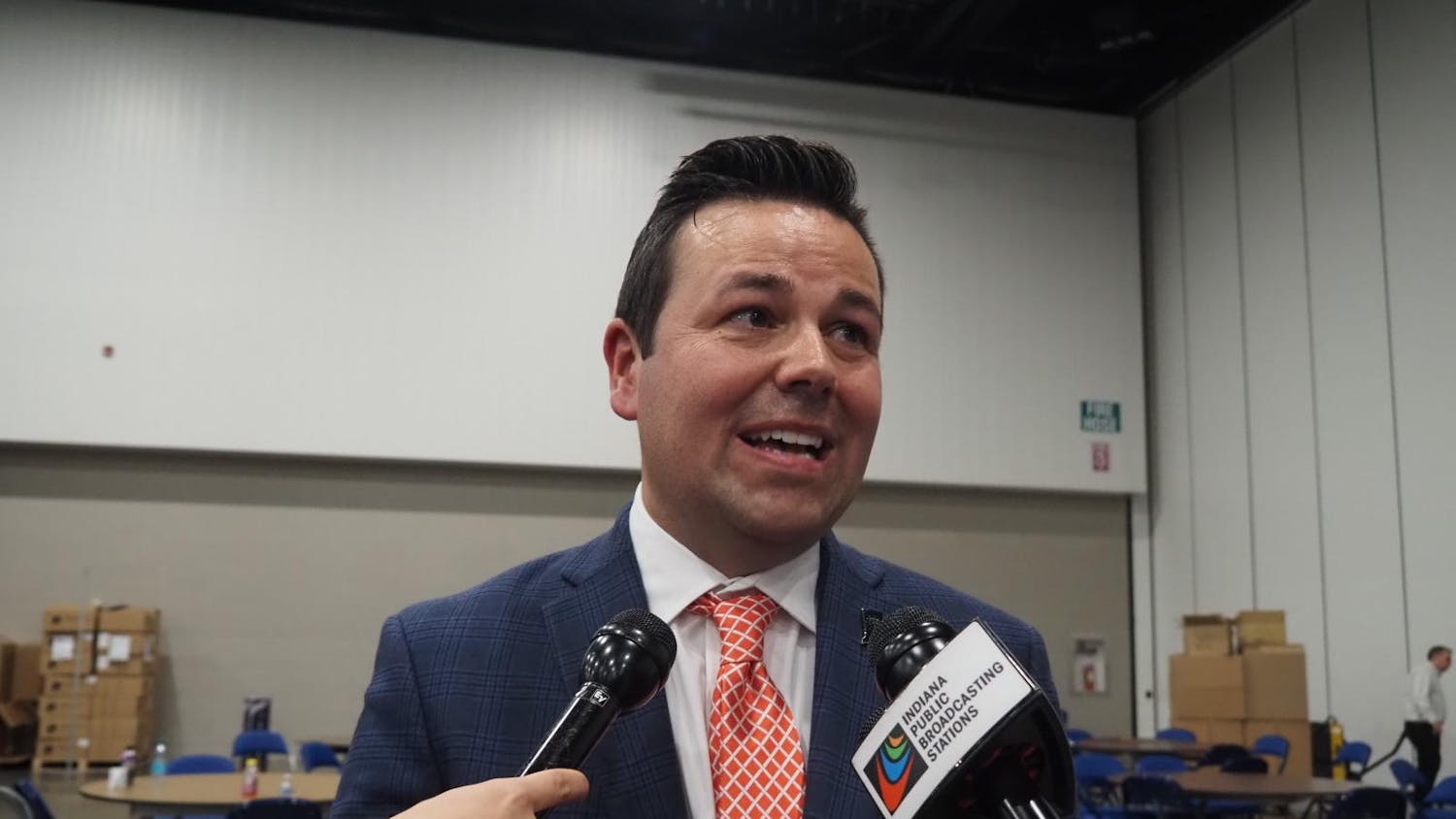ABC News congressional analyst Cokie Roberts maintains a hectic schedule, rising at 5 a.m. Sundays to fulfill her stint on National Public Radio's "Morning Edition." The self-proclaimed "one-woman campaign" gets one day off a week, a reprieve from chronicling actions of Congress. \nThis week, she spent that sacred afternoon fielding questions before a standing-room only crowd in Ernie Pyle Hall. The Center on Congress, an organization established in 1999 to increase public awareness of congressional activities, sponsored the lecture. \nExuding quiet composure, the Emmy award-winning anchorwoman addressed issues ranging from soccer moms to Cabinet appointments. She responded frankly, even candidly, to questions raised by students and faculty, moderated by professors Owen Johnson and David Weaver. \nThe daughter of late House majority leader Hale Boggs, Roberts said she grew up with a "healthy disrespect" for the media. But she noted the importance of a reporter's understanding of congressional practices. This comprehension extends, in turn, to readers, listeners and viewers. \nSuch family ties could be argued as contributing to favoritism, a notion Roberts disputes. \n"Am I biased?" she laughed. "Yes. I believe Congress should exist; I believe the founders of our country had the right idea. But I think most of the stories journalists write about Congress have little to do with the institution itself."\nSuch difficulties often arise in choosing journalistic content of both substance and mass appeal, Roberts said. Often, stories with the best sound bites are preferred for broadcast versus more pertinent issues, thus discouraging traditional investigative reporting.\n"We find ourselves victims of technology," Roberts said. She said the Internet and such 24-hour news sources as C-SPAN are convenient methods of newsgathering, encouraging lazy reporting. These practices, she claimed, are "terrible mistakes."\n"We can now 'turn on' our news sources," Roberts said. "The role of journalists now is to extend that, to go beyond the public realm and into private meetings to determine why people do the things they do."\nThis task is relatively easy in Congress. Reporters are able to check sources by "merely walking down the hall," Roberts said. But she did acknowledge the difficulties in dealing with White House press agents. News is "bestowed," granting reporters little opportunity to physically seek sources. Additional conflicts surface as White House staffs intentionally pit media outlets against one another. \n"If anyone tried to send me to the White House to cover a story, my first response would be to burst into tears," Roberts said. "However, it's important to get around the spin doctors, to seek out independent voices."\nSuch exhaustive efforts breed accountability, a hallmark of the profession, Roberts said. Journalists are "out all day, every day," staking personal credibility on the fairness of their stories. Forced to make concentrated decisions in choosing content, reporters often choose to report on flashier, more controversial issues, neglecting more significant issues, she said.\nConfronted with the similar ethical question of social involvement between political journalists and their sources, Roberts claimed Washington is "no different from other company towns -- sometimes you pull punches or go overboard, but that's rare." She said her personal objective at the end of the day is not to attend Washington social gatherings but to go home to her family. \nRoberts addressed the relatively favorable press coverage surrounding President George W. Bush, deeming this "honeymoon period" as fairly typical. President Bill Clinton was the exception, she argued, because he chose to focus on the controversial issue of gays in the military immediately following his inauguration. Bush, on the contrary, has adhered to pushing various campaign proposals through Congress.\n"He's dumb like a fox," Roberts said. "But he does the things people don't expect him to do. He believes you have to spend political capital to gain it, and that's what he's doing now."\nFreshman Melissa Harrold said she was impressed with the inside information about Congress and the anecdotes Roberts shared.\n"I was very impressed by her," Harrold said. "A lot of the stories she told were very interesting."\nJournalism professor Cleveland Wilhoit lauded Roberts' composure in fielding some of the more difficult questions. \n"I've seen some good speakers," Wilhoit said, "but she's one of the best." \nRoberts is back on Capitol Hill today, covering Bush's speech to a joint session of Congress.
Reporter tells tales of Washington
Cokie Roberts shares her career with journalism students
Get stories like this in your inbox
Subscribe





